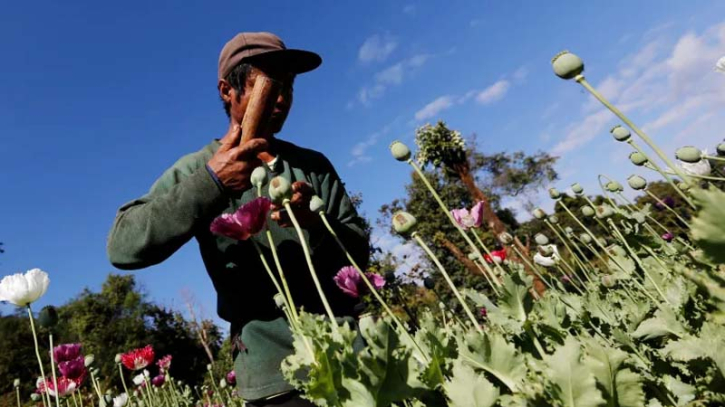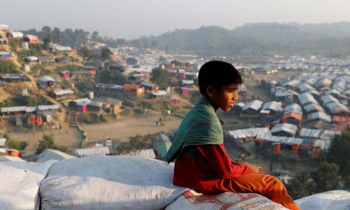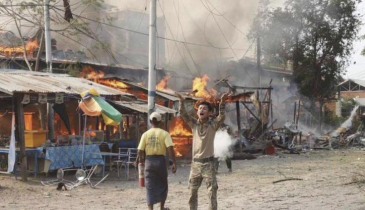Myanmar's civil war drives up drug production

Myanmar's civil war has led to a significant increase in the production and export of illicit drugs as the ongoing conflict between the military junta and armed ethnic rebels devastates the agriculture-based economy.
Since the military coup in February 2021, which ousted the democratically elected government and sparked mass protests and an armed insurgency, Myanmar has been in turmoil.
A report by the UN Office on Drugs and Crime (UNODC) revealed that Myanmar's opium fields expanded by 18% to cover 47,100 hectares in 2023.
This surge in opium production in Myanmar has coincided with a sharp decline in Afghanistan's opium farming following the Taliban's takeover in 2021 and their subsequent ban on opium cultivation. As a result, Myanmar has surpassed Afghanistan to become the world's largest opium producer, according to the UNODC.
The report highlights that Shan State, which borders Thailand, Laos, and China, remains the epicenter of Myanmar’s opium production, accounting for 88% of the total cultivation area.
Shan State also experienced the highest year-on-year increase in opium cultivation, rising by 20%.
Opium farming has long been a source of income for many in Myanmar. The "Golden Triangle," encompassing the jungle regions of Myanmar, Thailand, and Laos, has historically been infamous for drug production and smuggling.
The increase in opium production has been accompanied by a rise in heroin exports. Heroin, derived from morphine, a key alkaloid found in opium, saw over 150 tons exported from Myanmar in 2023, with a value exceeding 2 billion US dollar.
.png)









